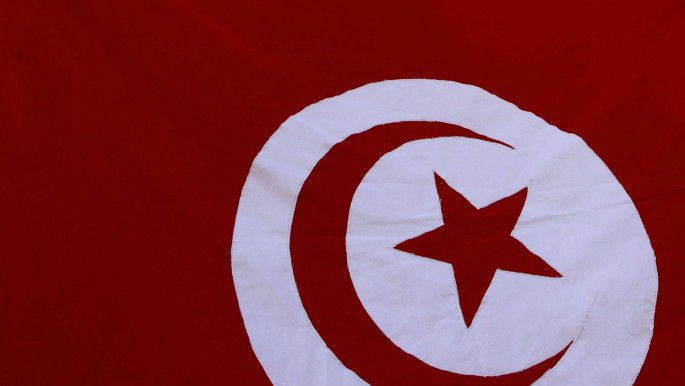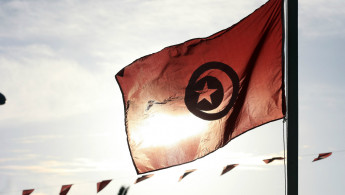Tunisian victim jailed for sodomy raises alarm on systemic homophobia
A Tunisian court sentenced 22-year-old Anas to eight months in February on charges of homosexuality under Article 230 of the penal code after he reported assault and robbery to local police.
Earlier in January, the Tunisian went to a police station in the southern city of Sfax where he claimed he had been raped and robbed by two men. He however retracted his allegation of rape during both his interrogation at the police station and his appearance before the judge, according to one defence lawyer.
Police detained the complainant along with the alleged aggressors, then forced him to undergo an anal examination to determine whether he was gay. The results were reported as "negative". Also, the young man denied having had any sexual intercourse with the two men. Despite that, the judge ruled that he consented to having sex with the assailants.
"It's a legal scandal. It shows firm will on the part of the judiciary to indict people on the grounds of sexual orientation or gender identity," commented Badr Baabou who heads the Tunisian Association for Justice and Equality (DAMJ).
Both of the perpetrators received sentences of six months for homosexuality and an additional two months for physical assault and theft. Anas was condemned to the same length of jail time: six months for homosexuality and two months for lodging a false allegation after he was judged to have consented to sex.
In Tunisia, the "crime" of homosexuality is given a legal punishment three times longer than that of violence and robbery.
 |
In Tunisia, the 'crime' of homosexuality is given a legal punishment three times longer than that of violence and robbery |  |
Under Article 230 of Tunisia's criminal code, established in 1913 by colonial French authorities, "sodomy" is punishable with up to three years in prison.
|
"Applying Article 230 is a human rights violation under any circumstances. It's unacceptable today," said Wahid Ferchichi, professor of public law and president of the Tunisian Association Defending Individual Liberties (ADLI).
"This article is unconstitutional since it violates rights and individual liberties protected by Tunisia's 2014 constitution such as equality of citizens, physical integrity and the right to privacy."
Amna Guellali, Tunisia office director at Human Rights Watch (HRW), called attention to an array of behaviours that go with the application of Article 230. Citing a report issued in November of last year, she said the human rights group documented more than ten cases of individuals prosecuted under the infamous anti-sodomy provision.
HRW found that Tunisian police investigating same-sex relations regularly enter homes without warrants, confiscate and search through phones, elicit forced confessions, arrest arbitrarily, mistreat in custody and order forced anal examinations to confess to homosexual activity.
"We observed that not only Article 230 is a breach of dignity and privacy rights, and a form of discrimination based on sexual orientation, but it also opens the way for other abuses like meddling in people's private lives, searching homes without warrants, or searching through chats and images on mobile phones," HRW's Tunisia director pointed out.
DAMJ's president expressed serious concern with regards to the size of actions targeting members of Tunisia's LGBT community, stating that more than 120 people were arrested in 2018 for homosexuality and harm to public morals.
He added that between January and March of last year, at least 22 aggressions against LGBT members at the hands of police were recorded, mostly in Tunis, lamenting shocking mistreatment perpetrated by police officials.
According to Baabou, there has been a "noticeable increase" in the frequency of attacks directed against homosexuals in reaction to the greater visibility gained by gay rights groups in the Tunisian space.
In his view, the more these associations come out and turn vocal in denouncing discriminatory violations or demanding rights, the more repression is seen at the expense of the gay community.
 |
HRW found that Tunisian police investigating same-sex relations regularly enter homes without warrants, confiscate and search through phones, elicit forced confessions, arrest arbitrarily, mistreat in custody and order forced anal examinations to confess to homosexual activity |  |
Clearly not an isolated case, Anas' story once again raised alarm about the widespread homophobia in the North African country.
Systemic to the point that a victim of violence who resorted to police for help found himself in a chain of events that turned him into a culprit leading to jail. A double violence suffered, essentially.
Another two cases documented by HRW in 2018 involved two men charged for sodomy after they filed complaints of rape. Both left Tunisia and applied for asylum, one in France and the other in Belgium, being too afraid to be prosecuted for homosexuality.
 |
|
| Read also: Tunisia rocks taboo on LGBTQ+ rights |
"It's horrible that a person who turns to state authorities for protection ends up being accused of homosexuality," Guellali voiced.
"That brings grave consequences since such charges will dissuade more people in a similar situation from reporting to police in future."
The fact that Anas retracted the rape complaint could either mean that he had made a false accusation or, shocked by the turn of events, he decided to withdraw his complaint. Nonetheless, one staff at DAMJ who spoke to his mother reported that the 22-year-old had been sexually abused.
In regular contact with Anas' lawyer, DAMJ informed that the young man is constantly harassed and attacked by his fellow inmates, and he is close to a nervous breakdown. His mother confirmed that his mental state is very fragile.
Tunisian LGBT rights group Shams, in partnership with the global organisation All Out, launched a petition calling for his release.
In the meantime, Anas and his supporters appealed the ruling.
Baabou criticised Tunisia's "double-sided" stance vis-à-vis its commitment to human rights, making reference to the 2017 Universal Periodic Review at the UN Human Rights Council when Tunisia pledged to end forced anal exams, and to ensure the protection of LGBTQI persons from all forms of stigmatisation, discrimination and violence. But in reality, the penal code remains unchanged and same-sex relations are still criminalised.
Despite commitment by Tunis to end the practice, anal examinations remain common. Tunisian authorities continue to force suspected homosexuals to undergo the unscientific and invasive procedure.
In sum, the Tunisian state has not kept to its promises.
Last year, however, Tunisia's presidential commission on individual freedoms (COLIBE) called for the repeal of Article 230 and a prohibition on anal testing. In October, 14 members of the Tunisian parliament introduced a draft law for a code on individual freedoms which incorporated several proposals from the presidential commission including the decriminalisation of homosexuality.
It is now up to the parliament to move on this draft legislation.
"I think the elections scheduled for this year offer a great opportunity for all political actors to express their respective positions on the proposed draft concerning individual liberties," Ferchichi argued saying that it will be good timing for the Tunisian civil society to put questions around homosexuality.
Alessandra Bajec is a freelance journalist currently based in Tunis.
Follow her on Twitter: @AlessandraBajec



